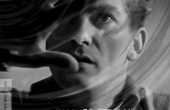Emily Inman
Emily Inman is a Nashville based poet, writer, singer, and songwriter. She has a Bachelors dual degree in English & World Literatures, and Philosophy & Religious Studies.
Junior Contributor III
- Lurker
- Pssst
- Sharp-Eyed Citizen
- ?
- Articles
2 - Featured
1 - Comments
45
- Ext. Comments
20 - Processed
8 - Revisions
6
- Topics
5 - Topics Taken
0 - Notes
13
- Topics Proc.
6 - Topics Rev.
0
- Points
395 - Rank
X - Score
260
Latest Articles
Latest Topics
The Problem of Pain and Suffering: C.S. Lewis, Rubenstein, and WieselIn the world, there are two kinds of pain: the natural, everyday pain that is emotional, physical, and mental, which effects our everyday lives. The second pain, and the focus of this paper, is the moral evil, the pain of magnitude—pain which wipes out significant numbers of the population, without any evidence of divine intervention. The greatest example is the Holocaust. In Elie Wiesel’s 'Night', a record of the ordeals he endured at the Nazi death camp Auschwitz, one gets a true sense of the evil which flourished in the Nazi death camps. In response to the terror of Auschwitz, Richard Rubenstein in his 'After Auschwitz', details the theological responses to the Holocaust and death of God theology. The problem of pain continues to compromise religion. However, there are ways to reconcile faith, with the presence of evil in our world. To the harsh reality of pain, C.S. Lewis will present his theodicy in his 'The Problem of Pain'. The topic question is, is religion a human need to overcome suffering? How do these theologians attempt to understand the problem of pain and suffering with the concept of an all good and loving God? What conclusions do they make?
|
Serendipity: a Philosophical ConversationSerendipity is defined in the 2001 film as a "fortunate accident". The film then progresses to give different philosophical inferences and destiny and fate are constantly mentioned and reflected upon. Which philosophers/theologians have mentioned destiny and fate, specifically, and how can that be related to this film? Suggestions of philosophers and theologians could be Stoic Philosophy, Epicurus, Aquinas, Anselm, Luther and the doctrine of predestination, etc. Does the idea of destiny and fate impede or fulfill our lives, especially with respect to love?
|
The Meaning of the Labyrinth in Pan's Labyrinth (2006) and The Labyrinth (1986)Deconstruct and draw parallels between the representation of the labyrinth in Guillermo del Toro's Pan's Labyrinth (2006) and Jim Henson's The Labyrinth (1986). What is the labyrinth an allegory for? What does the journey imply for the time periods that the films are set in? What do the creatures represent that the main character encounters?
|
Frankenstein AdaptationsDo an in depth investigation of the adaptations of Frankenstein to film. How has the monster been adapted from the novel into modern day? What does the monster say about society or about humanity in general? Or better yet, what inferences can be made in the relationship between Frankenstein and the monster, and the consequences of our desires to be like God/creators? This should make connections between the original Mary Shelley work, the various film adaptations, and possibly the recent Frankenstein film.
|
The Strange Case of Dr. Jekyll and Mr. Hyde: The Id and Ego in the Novel and Film AdaptationDeconstruct the representation of Dr. Jekyll and Mr. Hyde and its psychological implications. What does this say about the internal battle between moral and physical desires, between duty and desire, between Id and Ego? How do social conventions repress wicked desires in the novel and film? Finally, a more broad question, does Dr. Jekyll represent humankind? |


You are entitled to your feelings and your opinion. I am a Christian, therefore my intentions are certainly not to “degrade” Jesus. My intentions are the opposite, in fact: I am acknowledging the power of the Christ figure. What I have done is demonstrate the power that the messianic figure still has on humanity and popular culture. And humans have done this with messianic figures throughout our history in art, writings, etc. Now it is done through film.